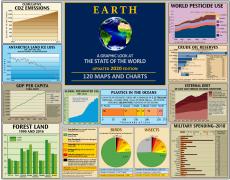Agriculture-food
The essential data about agriculture-food explained in 17 infographics. Detailed charts and maps covering food loss and waste, grain usage by region, greenhouse gas and food production, greenhouse gas emissions per kilogram of food and more. Learn the truth about agriculture-food and how it relates to the state of the world on The Global Education Project website with un-biased facts from the most reliable sources.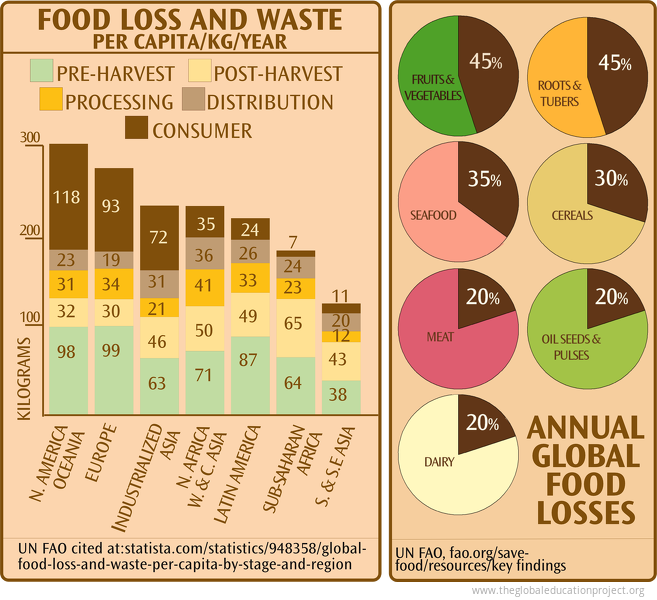 Approximately one third of the food produced in the world for human consumption—nearly 1.3 billion tonnes—gets lost or wasted every year.
"Loss" refers to any food that is lost in the supply chain between the producer and the market from problems...
Approximately one third of the food produced in the world for human consumption—nearly 1.3 billion tonnes—gets lost or wasted every year.
"Loss" refers to any food that is lost in the supply chain between the producer and the market from problems...
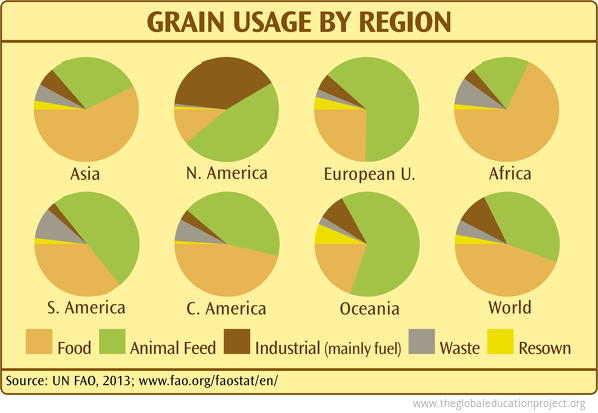
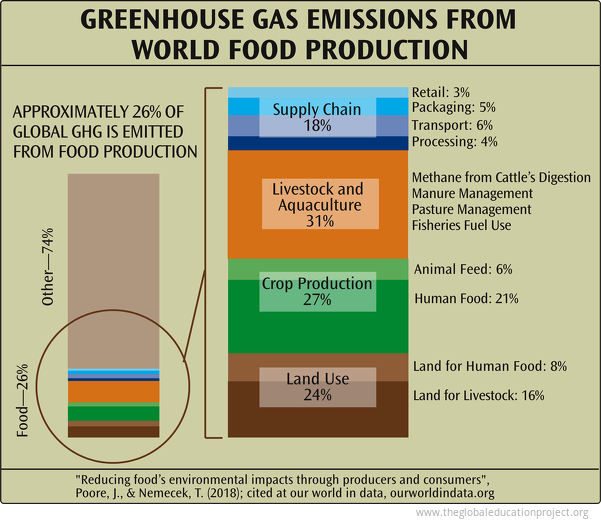
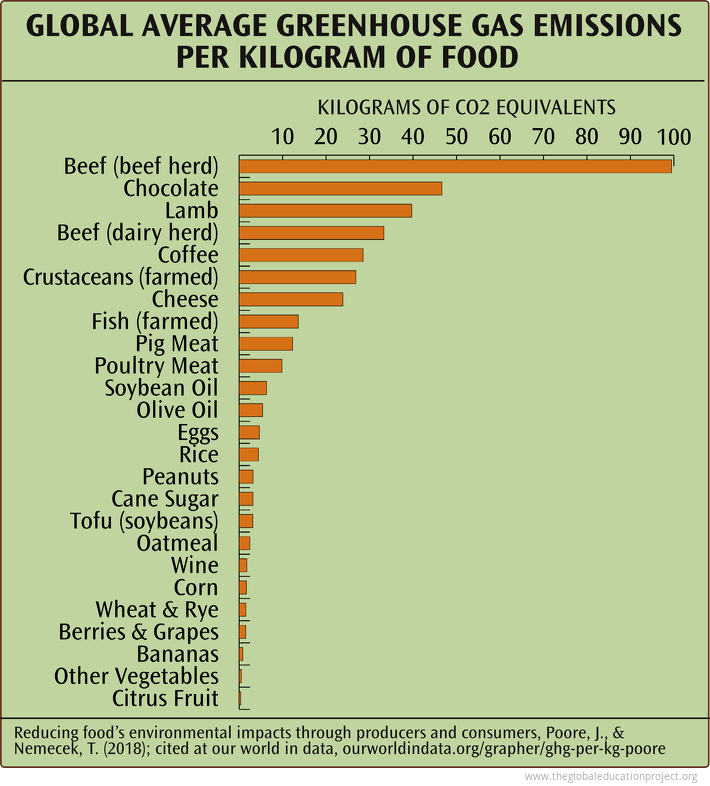
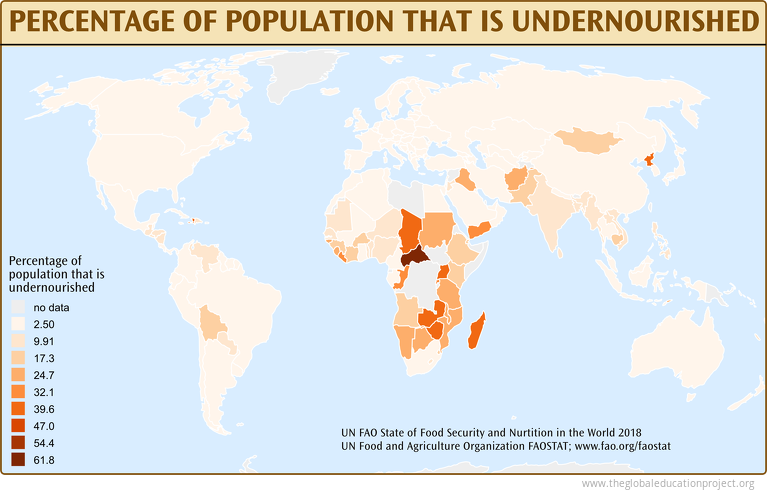 After a prolonged decline, recent estimates show global hunger increased in 2016. The failure to reduce world hunger is closely associated with the increase in conflict and violence in several parts of the world. In addition, gains made in ending hunger...
After a prolonged decline, recent estimates show global hunger increased in 2016. The failure to reduce world hunger is closely associated with the increase in conflict and violence in several parts of the world. In addition, gains made in ending hunger...
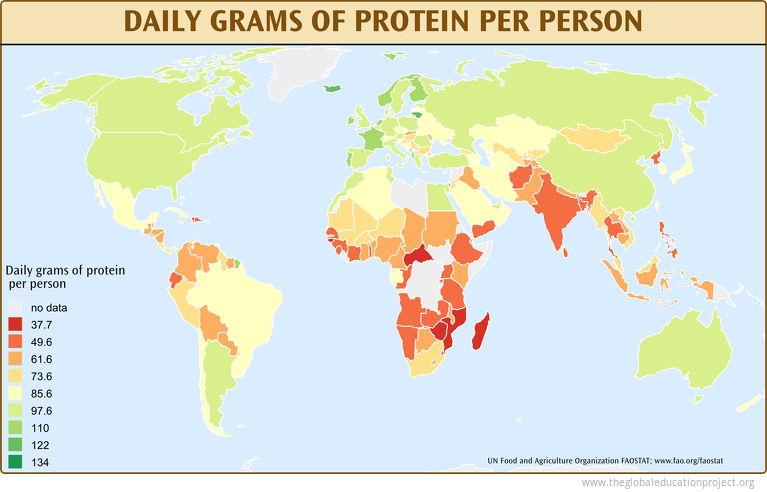 "Severe food insecurity is higher in 2017 than it was in 2014 in every region except Northern America and Europe, with notable increases in Africa and Latin America."
--UN FAO State of Food Security and Nutrition in the World 2018
"Severe food insecurity is higher in 2017 than it was in 2014 in every region except Northern America and Europe, with notable increases in Africa and Latin America."
--UN FAO State of Food Security and Nutrition in the World 2018
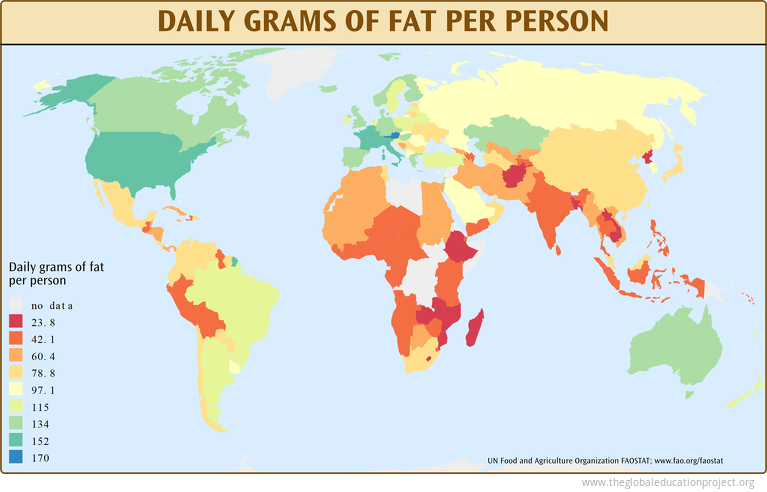
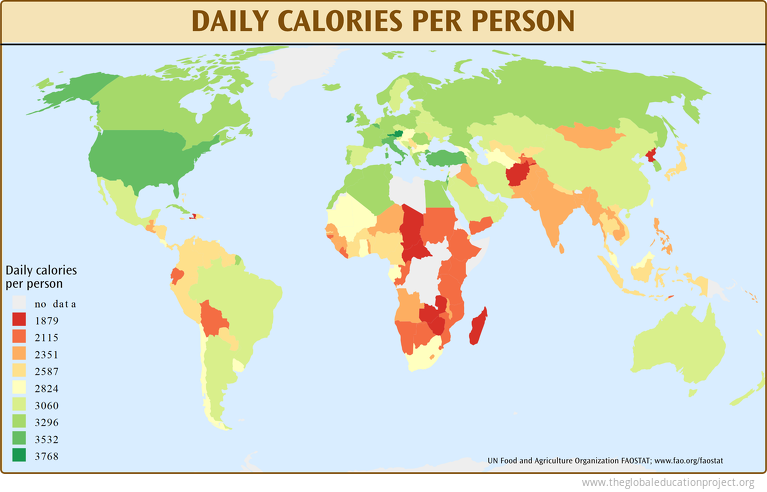
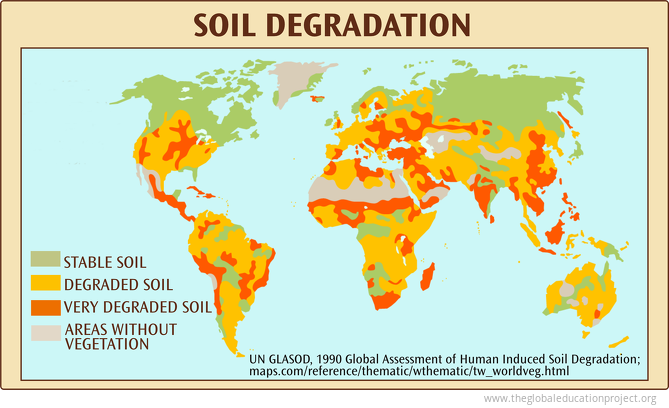 An estimated 75% of the Earth’s land surface has been degraded through human activities, negatively impacting the well-being of at least 3.2 billion people, pushing the planet towards a sixth mass species extinction, and costing more than 10% of the...
An estimated 75% of the Earth’s land surface has been degraded through human activities, negatively impacting the well-being of at least 3.2 billion people, pushing the planet towards a sixth mass species extinction, and costing more than 10% of the...
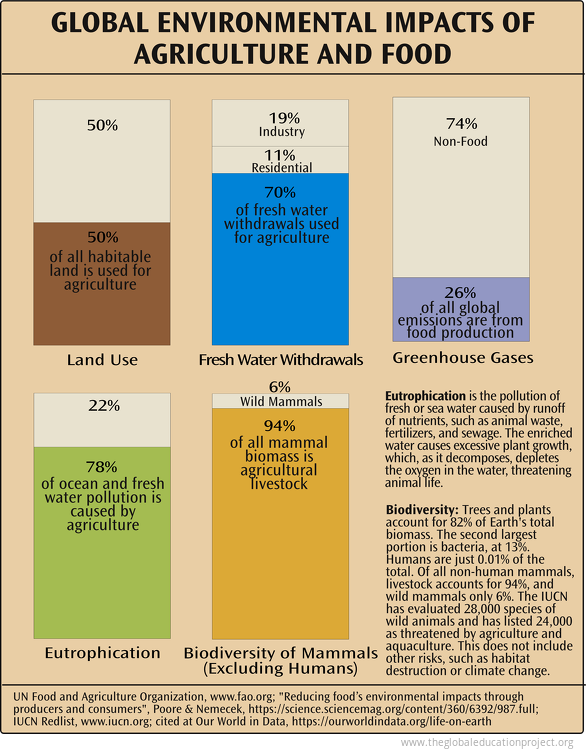
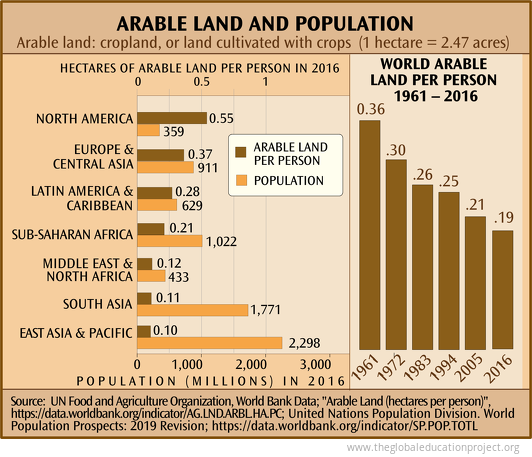 "In 1960, when the world population numbered only 3 billion, approximately 0.5 hectare of cropland per capita was available, the minimum area considered essential for the production of a diverse, healthy, nutritious diet of plant and animal products like...
"In 1960, when the world population numbered only 3 billion, approximately 0.5 hectare of cropland per capita was available, the minimum area considered essential for the production of a diverse, healthy, nutritious diet of plant and animal products like...
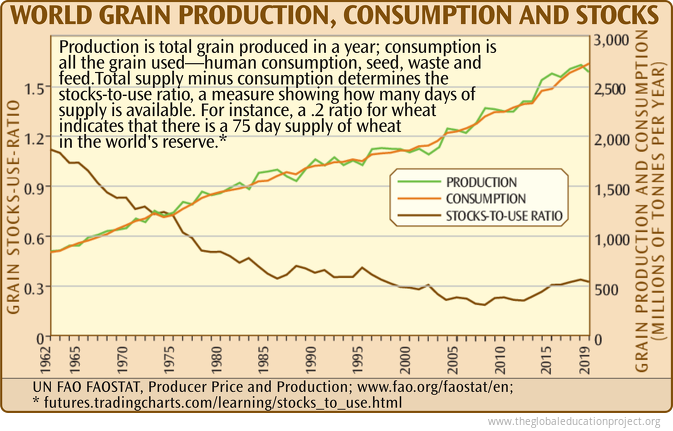 Increases in grain production brought about by irrigation and synthetic fertilizer and pesticide inputs have peaked and begun declining. As consumption surpasses production, the world's stocks of stored grain have been falling relative to each year's...
Increases in grain production brought about by irrigation and synthetic fertilizer and pesticide inputs have peaked and begun declining. As consumption surpasses production, the world's stocks of stored grain have been falling relative to each year's...
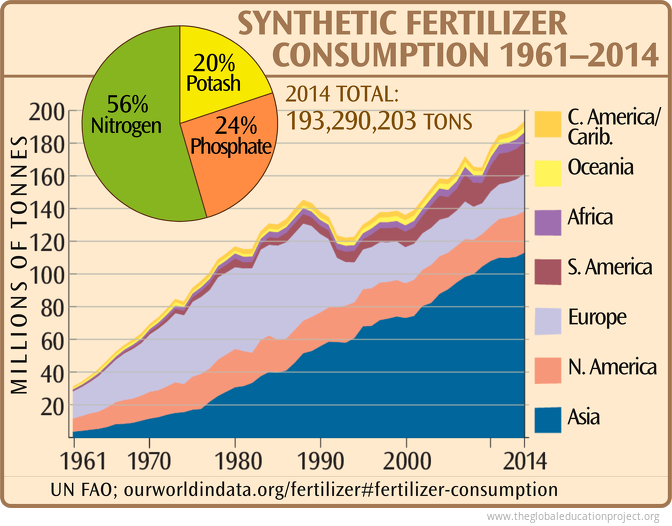 Nitrogen fertilizer production requires a large and affordable supply of natural gas.
Natural gas is a key feedstock (up to 90 percent of the total costs) in the manufacturing of nitrogen fertilizer for which there is no practical substitute. Nitrogen...
Nitrogen fertilizer production requires a large and affordable supply of natural gas.
Natural gas is a key feedstock (up to 90 percent of the total costs) in the manufacturing of nitrogen fertilizer for which there is no practical substitute. Nitrogen...
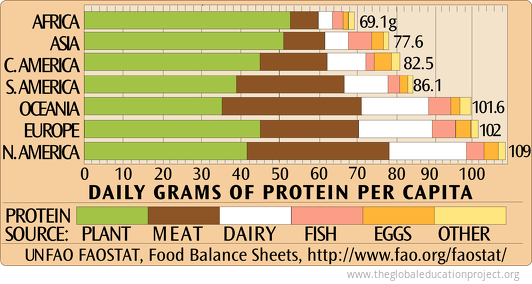
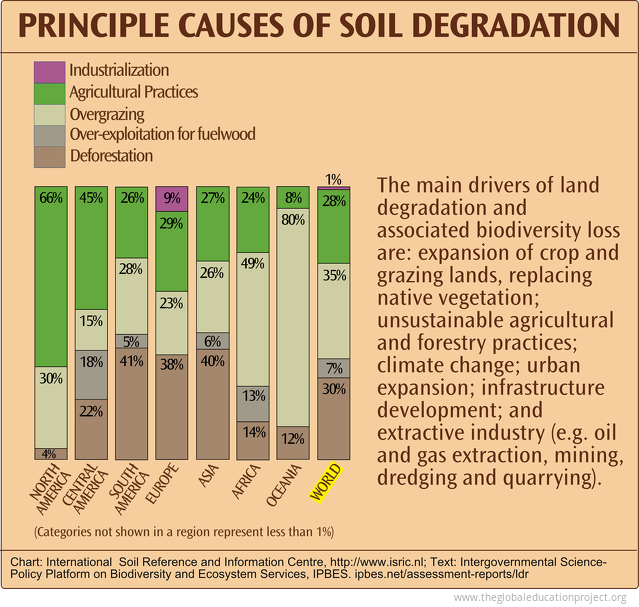 "About 2 million hectares of rainfed and irrigated agricultural lands are lost to production every year due to severe land degradation, among other factors." [1]
"It takes approximately 500 years to replace 25 millimeters (1 inch) of topsoil lost to...
"About 2 million hectares of rainfed and irrigated agricultural lands are lost to production every year due to severe land degradation, among other factors." [1]
"It takes approximately 500 years to replace 25 millimeters (1 inch) of topsoil lost to...
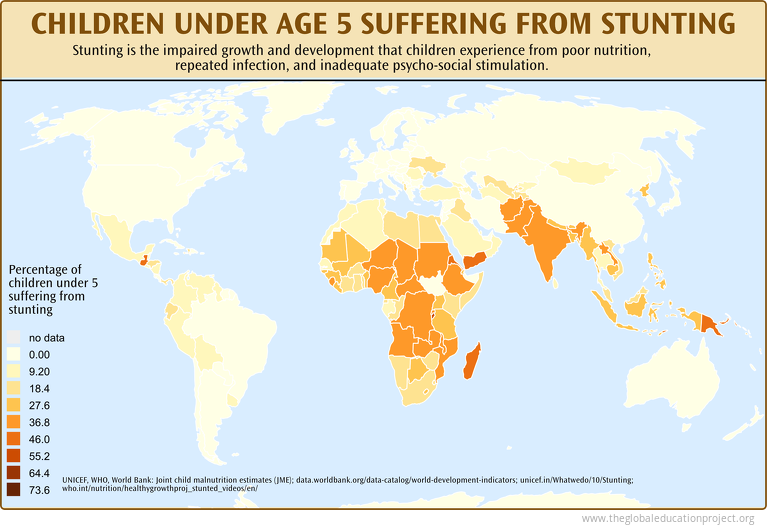 In 2020, nearly 144 million children under 5 suffer from stunting (under height), 47.0 million children under 5 were wasted (underweight) , and of those, 14.3 million were considered severely wasted. Stunting and other forms of under-nutrition are thought...
In 2020, nearly 144 million children under 5 suffer from stunting (under height), 47.0 million children under 5 were wasted (underweight) , and of those, 14.3 million were considered severely wasted. Stunting and other forms of under-nutrition are thought...
Agricultural and food production has changed dramatically in the past 100 years as increasing population and consumption put pressure on the world's food supply. A look at the environmental impacts of agriculture and food; global distribution and nutrition;...
Page 1 of 1
Sign up for EARTH Dispatches
Enter you email below to get jaw dropping charts and maps delivered straight to your inbox.
Get the EARTH presentation
A 150 page high-resolution PDF containing all updated maps, charts and data on EARTH website; use as an information-packed educational slide show, printed booklet or a set of single-page handouts.
Learn More
